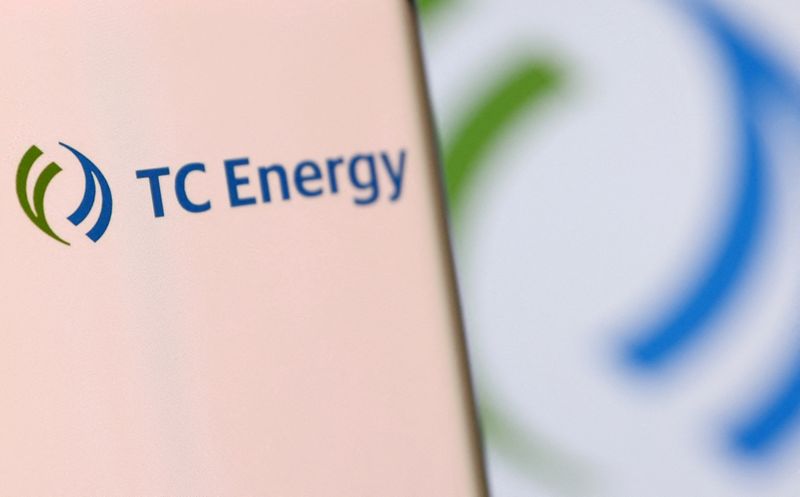(Adds editing credit)
By Rod Nickel and Nia Williams
WINNIPEG/CALGARY (Reuters) - The largest oil spill in the 12-year history of TC Energy (NYSE:TRP) Corp's Keystone pipeline, discovered late Wednesday, raises questions about special permission it received five years ago to run at higher pressure, making it unique among U.S. oil pipelines.
Keystone is responsible for three spills of at least several thousand barrels in the last five years, all of which have occurred since Keystone was allowed to run the line at higher rates to move more oil. This week's spill of 14,000 barrels in Kansas is sure to raise alarms over future pipeline development, as U.S. regulators had already increased scrutiny of pipeline construction due to previous Keystone spills in 2017 and 2019.
All three spills are among the 20 largest crude accidents in the United States since 2010.
Keystone, which opened in 2010, carries more than 600,000 barrels of Canadian crude oil to the United States, serving refiners in the Midwest and U.S. Gulf, along with exporters out of the Gulf. After decades of reliance on oil from the Middle East, most U.S. imports now come from Canada.
The pipeline suffered few incidents in its early years, but since 2017, the number of spills increased after TC Energy received a special permit from the U.S. Pipeline and Hazardous Materials Safety Administration (PHMSA) to operate at a higher stress level than other lines.
Bill Caram, executive director of the non-profit watchdog Pipeline Safety Trust, questioned whether that permit may be behind the run of serious incidents that followed.
"Even when you normalize for incidents per mile and for barrels spilled by throughput, we’re still seeing more failures here than the industry standard," Caram said.
TC Energy did not respond to requests for comment.
TC Energy proposed a second line known as Keystone XL in 2008, but after 13 years of local and environmental opposition and regulatory battles to get it built, President Joe Biden cancelled its permit after taking office in January 2021.
A HISTORY OF ACCIDENTS
Keystone's accident history has been similar to other crude oil pipelines since 2010, but the severity of spills has worsened in recent years, a 2021 report by the U.S. Government Accountability Office (GAO) said.
After the 2019 spill, the GAO commissioned a report of the line's problems, which has caused pipeline regulators to more heavily scrutinize the construction process.
The GAO report noted that PHMSA allowed TC Energy to start operating the line at 80% of what's known as specified minimum yield strength - the point at which steel pipes will start to deform. No other U.S. crude line can operate at more than 72% of that level.
"I think a lot of scrutiny is going to be placed on the special permit," said Jane Kleeb, founder of Bold Alliance, an advocacy group that fought Keystone XL. "That high pressure is causing more wear and tear."
In a June 2021 letter responding to the GAO report, TC Executive Vice-President Leslie Kass said PHMSA's 51 conditions on TC "offset any potential risk" associated with running Keystone at a higher stress level, and the GAO report notes that several safety consultants made similar assessments.
PMSHA did not respond to a request for comment.
Running at higher rates is worth investigating along with possible operator error or material failures, said Dennis McConaghy, who retired from TC Energy as executive vice-president of corporate development in 2014, when it was known as TransCanada.
John Stoody, vice-president of government relations at the Liquid Energy Pipeline Association said special permits come with numerous different operating conditions. Engineers look at factors like pipeline wall thickness and grade of steel to determine what the system can handle, and must get approval from PHMSA.
"If anything there are complaints from industry about how lengthy the special permit process is. It's an extremely rigorous process that PHMSA operates," he said.
Keystone's three biggest leaks occurred during fall or winter, but Najmedin Meshkati, a professor of civil and environmental engineering at the University of Southern California, said there is nothing to suggest cold weather increases the likelihood of pipeline leaks.

Due to activist opposition to new pipeline construction, operators have every reason to try to move as much oil as possible through existing lines, TC Energy's McConaghy said. TC Energy had recently increased the amount of oil running through the line to test operations on the system.
"The economic driving force to pushing that envelope is always going to be there," McConaghy said. "It's up to PHMSA to determine whether that is something that's prudent."